Roman Catholics Say The Darndest Things: Part 2
A few days ago I began responding to the common reactions I hear when a Roman-Rite Catholic visits an Eastern-Rite parish for the first time. Last time I covered numbers 1-10 and today I’m going to finish the list with numbers 11-20 for “Roman Catholics Say The Dardnest Things”:
11. “What are the circles on sticks being carried around?”
These are called “rapidia” (or “flabella”). They are carried by altar servers in the Gospel procession and again when the bread and wine are brought to the altar. On them are pictures of angels. Symbolically, they remind us that our earthly liturgy touches Heaven.
12. “Why didn’t they read the right Lectionary Readings?”
A different Lectionary is used in the East. In fact, a different liturgical calendar is used, resulting in some of the feasts being on different dates. Additionally, you won’t find the Old Testament-Psalm-New Testament-Gospel sequence you’re used to in the Western Mass.
13. “Who is this ‘Thay-o-to-cus’ who keeps being mentioned?”
This is a name for the Blessed Virgin. “Theotokos” is Greek for “God Bearer”.
14. “Do we get to sit down yet? My legs hurt”
Well, be grateful that you got to sit down for the Reading and Homily! Pews are a relatively recent invention and traditionally you would have to stand throughout the entire liturgy! Of course, if you are unwell, pregnant etc. please feel free to sit. People won’t tut too loudly…
15. “Where are the kneelers for the consecration?”
It is traditional to stand throughout the consecration. At the words of institution (“This is my Body…”) you should bow and make a profound sign of the cross (yeah, again…).
16. “Help! It’s Communion and I don’t know what to do!”
Things look a little different, but it’s the same Eucharist, I promise! The Body and Blood are together in a single chalice (rather like “intinction”). Only the priest gives out Communion – there are no extraordinary Eucharistic ministers.
If you a Catholic in a state of grace you are welcome to come up and receive. You are invited to bow and make the sign of the cross prior to stepping in front of the priest. With your hands across your chest, simply open your mouth. The priest will say something like:
“The servant of God, David, receives the Body and Blood of Christ
for forgiveness of sins and eternal life”
You say nothing. The priest, as a spiritual father, will then feed you by placing the Eucharist into your mouth with a spoon. Don’t be surprised if it’s warm, it is common to heat the wine prior to consecration. Make the sign of the cross (again!) and return to you place. It is customary to remaining standing in your pew while the rest of the congregation are fed.
In the East, children receive all their sacraments of initiation (Baptism, Confirmation/Chrismation and Eucharist) as babies, so don’t be surprised to see small children receiving communion.
17. “The priest just gave the final blessing. Is it over now?”
Not quite, we now go up to the front (as we did at Communion) to kiss the cross and possibly be anointed with oil. As you go up the priest he will most likely say “Christ is among us”. The correct response is “He is and will be”. There are several such responses of this kind in the Eastern Church.
18. “The altar servers are standing around with small trays of bread. What is this?”
It’s not the Eucharist, it’s called “Antidoron”. This is the part of the loaf which wasn’t consecrated during the service. Eat! It’s yummy
19. “Wow, that Mass was great!”
It’s called “Divine Liturgy”, not “Mass”! It’s like calling an Australian a Canadian – they’re both part of the same Commonwealth, but they’re from very different countries! The word “Mass” comes from the Latin dismissal, “Ite Missa Est”.
20. “Now what?”
We’re going to breakfast because the Apostles’ Fast will be over and I will be dying for bacon, sausage and eggs!
Part 1 | Part 2
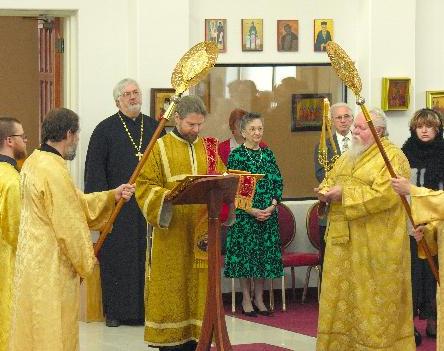
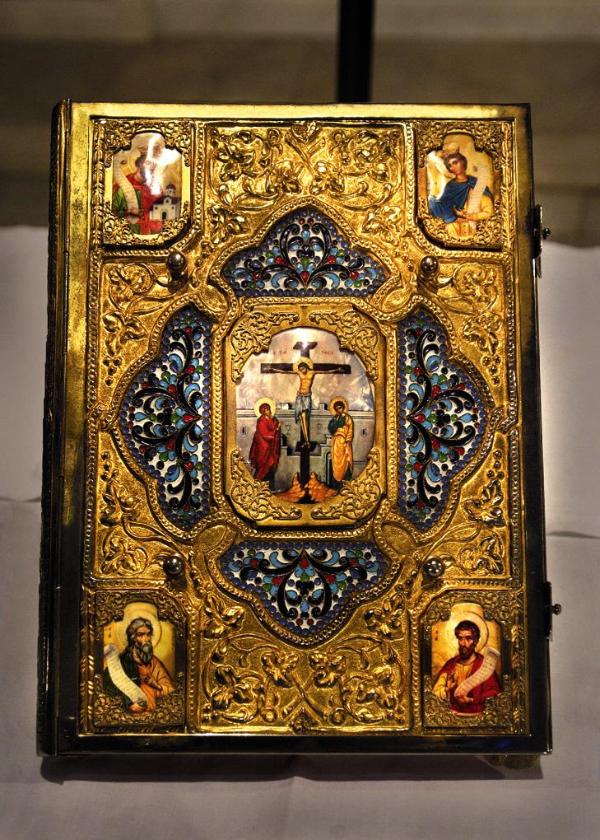
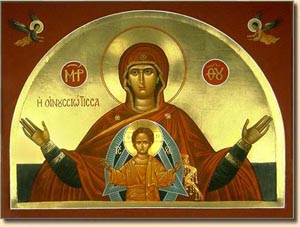


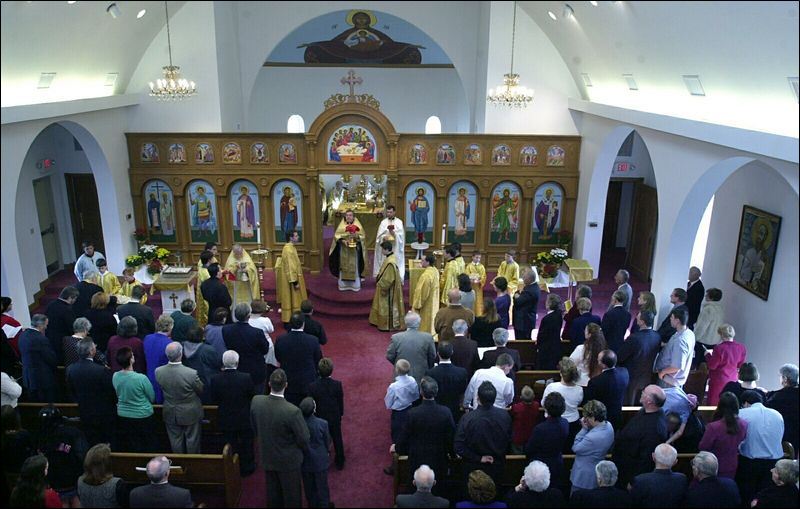
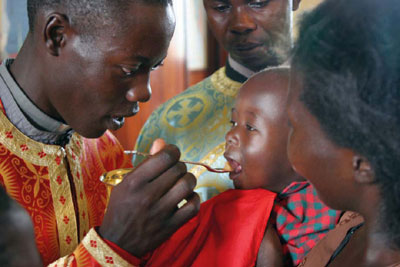
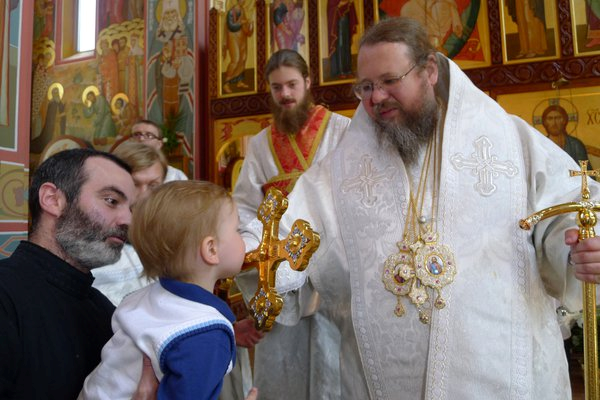

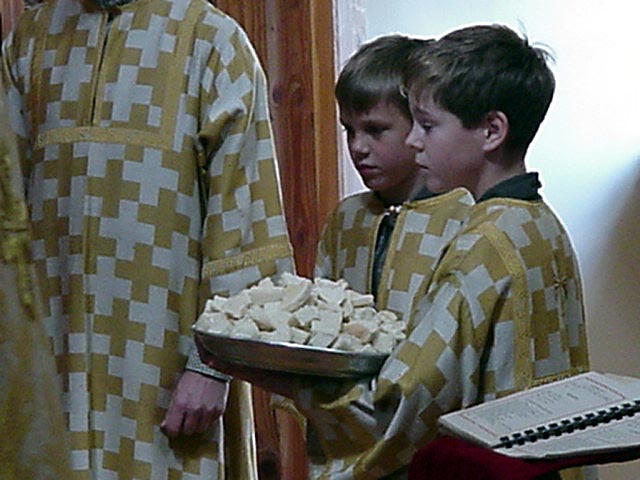


Most importantly… where are going to enjoy said feast?
Any recommendations?
Broken Yolk
Hash House
Tractor Room
Studio Diner
Perry’s Cafe
and about a hundred others around these here parts…
Pingback: Roman Catholics Say The Darndest Things: Part 2 - CATHOLIC FEAST - Every day is a Celebration
I loved this series! We have no Eastern rite parishes in the vicinity, so this was a real blessing!
Thanks for letting me know!
Can we squeeze a part 3 out of this Trilogy for all of us Roman Catholic peeps?
Hmmm…I initially only wrote it as a two-parter…I’ll have a think
It’s not really intinction. That would be more like what the Maronites due.
Hey Joseph,
Welcome to Restless Pilgrim! Yeah, it’s only a loose comparison, translated into Roman
Thanks,
David.
” there are no Eucharistic ministers.”
The Eucharistic ministers are the same as they are in the Latin Rite, i.e. priests. There are no EXTRAORDINARY Ministers of Holy Communion in the Eastern Rites.
“If you [are] a Catholic in a state of grace you are welcome to come up and receive.”
Only if you have not already received Holy Communion that day and if you have fasted as required (usually for a longer period than required in the Latin Rite.
“The priest will say something like:
“The servant of God, David, receives the Body and Blood of Christ for forgiveness of sins and eternal life”
What if he doesn’t know your name?
Hey Ronk, thanks for your comments and welcome to Restless Pilgrim!
> The Eucharistic ministers are the same as they are in the Latin Rite, i.e. priests. There are no EXTRAORDINARY Ministers of Holy Communion in the Eastern Rites.
Good point. Growing up, we never qualified the name in my parish, but we should have. I’ll update the post.
>What if he doesn’t know your name?
Then either:
1. You can say your name as you come up to the priest. This is what we’re doing at my parish since a new priest has arrived.
2. The priest will just omit your name: “The servant of God,
David,receives the Body and Blood of Christ for forgiveness of sins and eternal life”I sure love this excellent explanation that I can pass onto my Australian relatives, I gave shown them the English translation, but I like the way you have questioned and explained the who mass. I also would like to know why now we Ukrainian Catholics are calling ourselves “Ukrainian Greek Catholics”. All my long life I have put myself down as Ukrainian Catholic and NO additions
Hey Olesia, welcome to RestlessPilgrim.net! Thank you for your kind words. As for why some people now call themselves “Ukranian Greek Catholics”, I am not sure. Most of my friends typically just describe themselves as “Eastern Catholics”.